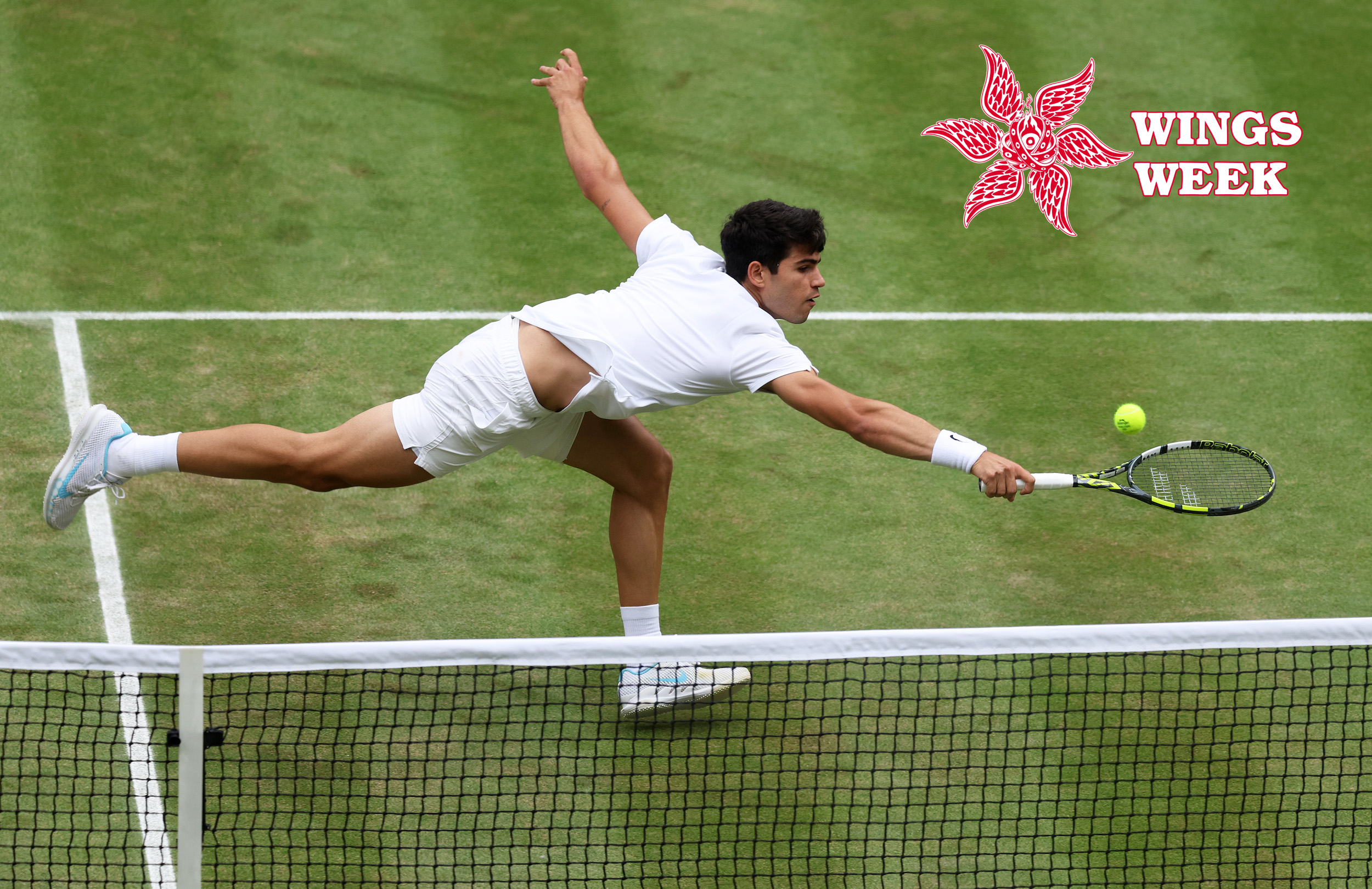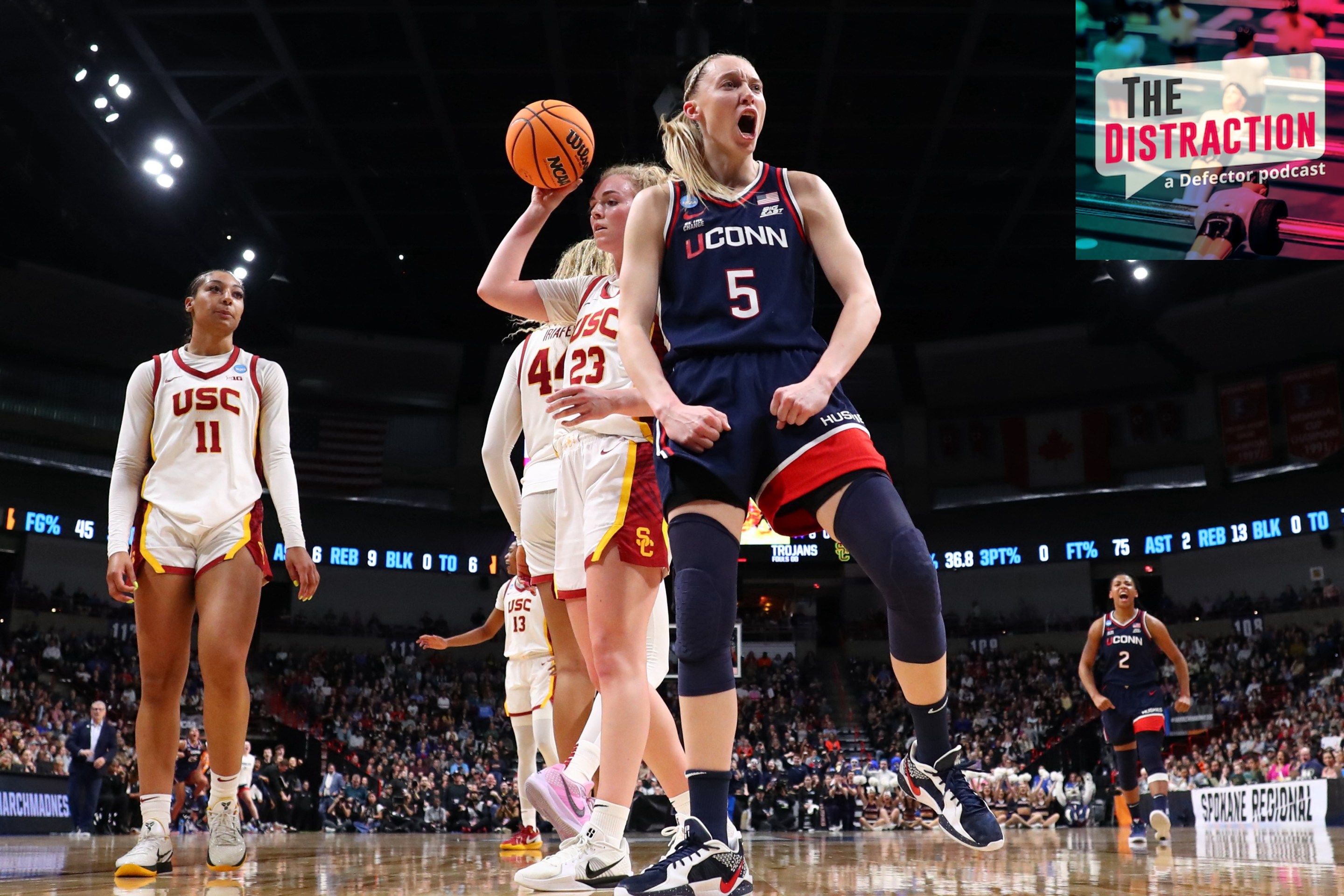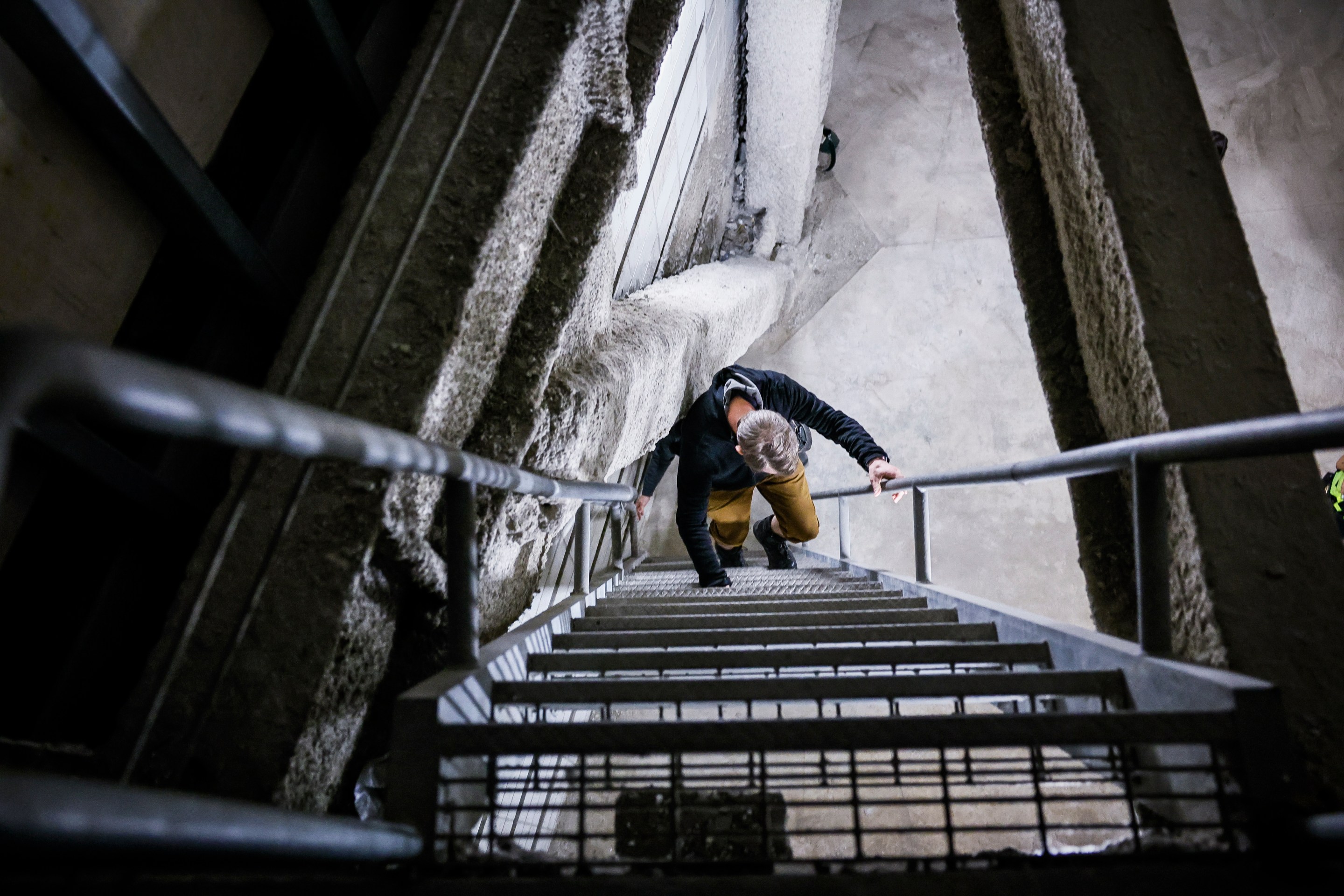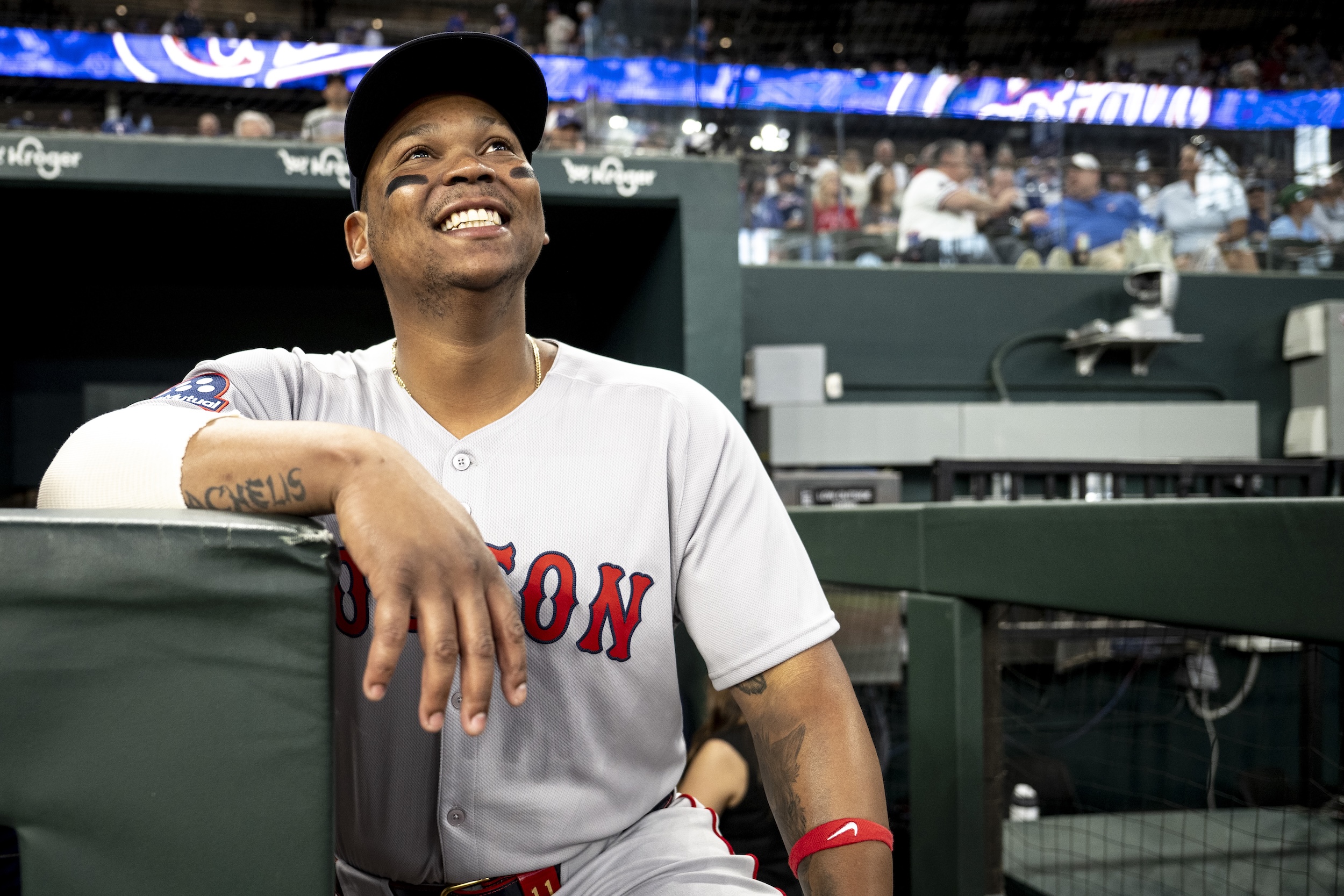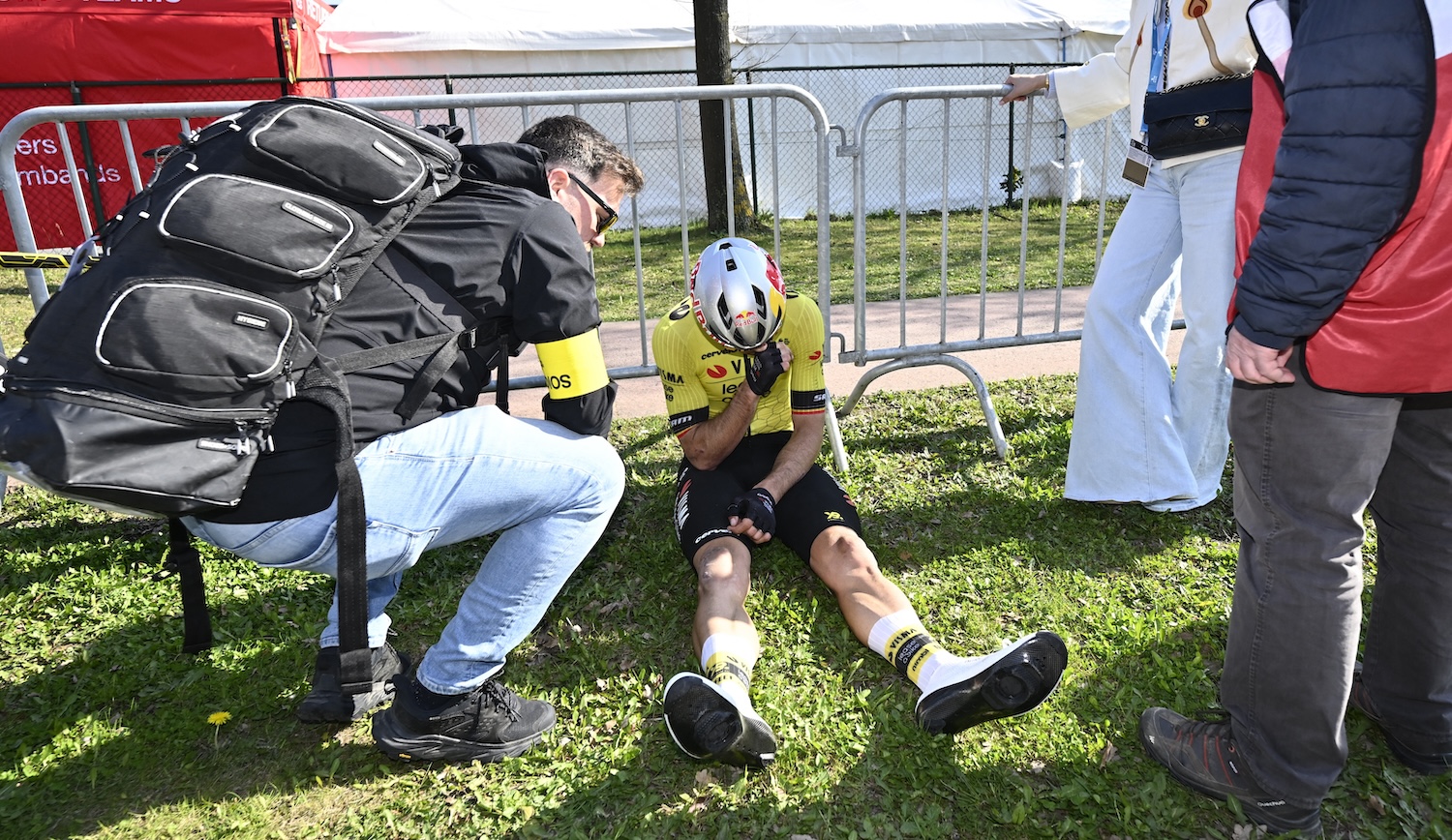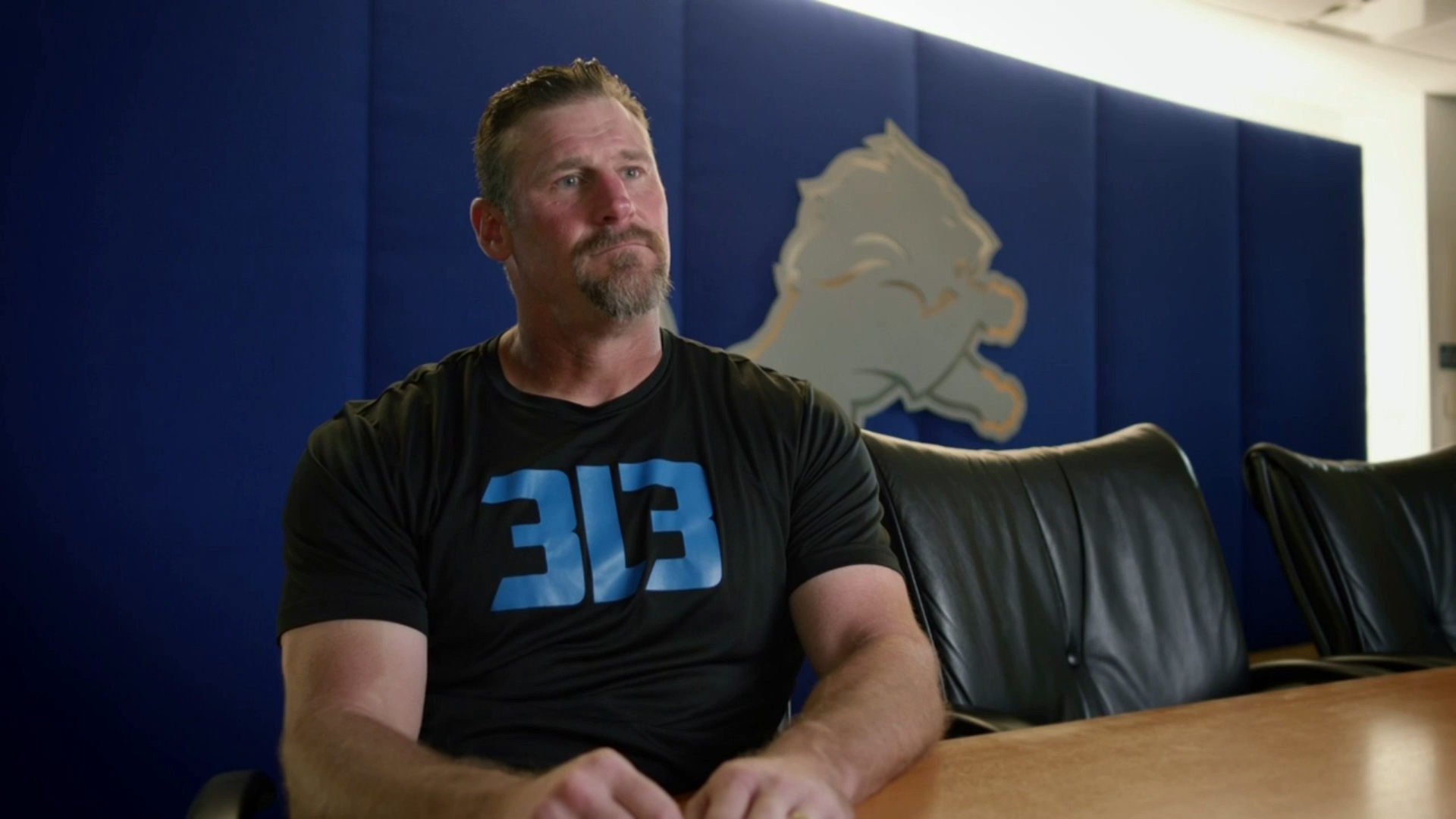The action at Wimbledon brought new narratives and revived some old ones. Carlos Alcaraz won the title like last year but seems to have upgraded from king of men to warrior-seraphim, while an unrelenting Barbora Krejcikova unexpectedly bagged her second major title. The grass also hosted endearing underdogs, a new model of servebot, players slipping on slick patches, and an overperforming octopus. Defector's tennis desk convened to discuss the most notable events of the tournament and what might come next.
What To Make Of Jasmine Paolini's Fledgling Career
Patrick Redford: It is currently Wings Week at Defector, so I’d like to kick our Wimbledon chat off by asking each of you to give me a sufficiently avian headline for the two weeks of action.
Owen Lewis: Barbora Krejcikova Has Regrown Her Wings? C Is For Carlos Alcaraz? Novak Djokovic Is Finally Falling From Grace? My current emotions are admiration for Krejcikova’s sensational comeback against favorite Elena Rybakina in the semifinals and a bit of fearful awe at Alcaraz’s dominance. From a disappointing first two months to the year, he’s now wrested control of the season (and who knows how many future seasons) by winning the elusive Channel Slam.
Giri Nathan: Jasmine Paolini … Strangely Soars Again? Is A Joyous Tennis Angel? Gives You Wings? What a fun, improbable run—she’s one of just four women since 2000 to have made the finals at Roland-Garros and Wimbledon in the same season. And this is a player who had never advanced past the second round of a major before this year. Winning in Dubai seemingly set her on a radically different trajectory, and now, at age 28, she’s stringing together back-to-back major finals. In Paris she got obliterated by Iga Swiatek, but she really did have a chance at Wimbledon against Krejcikova, and I hope she can somehow take another crack at a major.
PR: Paolini’s leap into the top five is one of the coolest stories of the season, and I wonder how sustainable you think it is. To me, the second serve is the only real weakness, and we saw Donna Vekic totally tee off on it in that spectacular semifinal. Her game is so fun to watch and her oxymoronic aura of proud humility is so fun to root for. Maybe I just like Italians. But the thing that I like most about her (a short wingspan) is also what worries me.
OL: I was rooting for Paolini in the final since Krejcikova has already won a major, and the last few games were pretty heartbreaking to watch: she double-faulted away the vital break at 3-3 and couldn’t capitalize on break point as a clutch Krejcikova served for the match. I hate to say it, but that might have been Paolini’s best chance to win a major. The WTA is so deep and best-of-three offers so few opportunities to play anything but your best. That said, making Roland-Garros and Wimbledon finals consecutively gives real reason for optimism. Paolini compensates for her short wingspan with a peppy forehand and exceptional court coverage; back-to-back major finals suggest that the recipe for success might be sustainable. I think the field is a bit weaker at Wimbledon than at the other majors, with Iga Swiatek not yet a ruler of the surface, so Paolini as a future champion at the All England Club is not difficult to picture. I just wouldn’t bet on it with so many other great players, many of them possessing more firepower, in the mix.
GN: I think this is almost certainly the peak of her career—it’d be the peak of pretty much any player’s career—and I’m not sure I’d bet on her making it into another major final. It’s difficult to isolate any part of her game as an outlier skill (except for perhaps smiling). Which isn’t to say that her game isn’t effective, it’s just hard to discern the real weapon here. But eight different Wimbledon champs on the women’s side over the last eight tournaments does make me feel that this title is anyone’s for the taking, so long as the circumstances line up perfectly. Swiatek does not seem to prioritize grass, and I don’t blame her given the outrageous workload she takes on in the clay season. After Elena Rybakina won here in 2022 and proceeded to back it up with lots of big titles, I thought Wimbledon would be hers to rule—the big serve, the easy power—but that has not been the case. Paolini actually was the one to beat her in Paris, and Krejcikova took her out here.
PR: I definitely also thought Rybakina was taking it, Giri. Eight different winners in eight years is almost as wild as Vondrousova and Paolini winning a total of one match at Wimbledon before making it to the last two finals. Considering the topsyturviness and the irrepressible Czech surge we've got going here, the results of the 2025 Wimbledon ladies' singles final is already clear: Congrats, Linda Noskova! Your second-round loss to Bianca Andreescu was the most encouraging result possible.
Can You Make A Nest Out Of Grass?
OL: Giri, you also mentioned the miles on Swiatek’s odometer from the clay season. Grass is also such a short slice of the calendar—there’s no grass tournament besides Wimbledon worth more than 500 points and opportunities to prepare for the big one cut into recovery time from Roland-Garros. I thought it was notable that Iga said she started off-court Wimbledon prep too soon this year and might just take a vacation before London in 2025. (That she lost from a set up for the third time in the last four majors worries me more than the loss itself.) As usual, we saw a bunch of slip-induced injuries this year, with Grigor Dimitrov getting spiked out of his fourth-round match early courtesy of an abductor tear. With all this in mind, how possible do you think it is for players to get significantly better on grass? Alcaraz, who has won two straight Wimbledons and whose best surface somehow remains debatable, is a total one-off. What would you recommend to Swiatek, or other players, if they want to become as good on grass as on clay or hard courts?
GN: I don’t know what I’d recommend as a course of action. Maybe getting a little more comfortable flattening out the ball from the baseline? Iga’s stroke production is somewhat at odds with the kind of bounces you get on grass. On clay and hard, she can weaponize the cumulative exhaustion of dealing with high-kicking topspin, but the grass dampens that, leaving her opponents a more manageable ball. That said, Iga has incredible mobility, and you always see her squatting deep to hit up low balls, which is a valuable skill for defending on grass. While her ascendence to the top of the sport has coincided with her game growing deliberately more sledgehammer-like, if she cares about grass, it’s probably time to get on the practice court and drill those low-bouncing slices and volleys. If the ball isn’t going to bounce uncomfortably high, get good at keeping it uncomfortably low. So I think there are some latent skills that can be developed further, but it might take some concerted practice time at a juncture of the tennis calendar where she tends to be totally fried.
PR: That sounds possible, if perhaps not entirely worth it given how perfect her game is for the clay, and I’m curious how often a top player like Iga can make a hater surface into a waiter surface. Like, how rare is it for someone like Carlos to figure out how to play on grass in a single season, as he did last year? This was the first Wimbledon I paid close attention to, and I felt it certainly lived up to its reputation as being one for the servers, especially on the men’s side with Frances Tiafoe pushing Carlos to five and Giovanni Mpetshi Perricard making it to the fourth round. But also it’s clearly about more than the serve. Is it largely a matter of getting comfortable moving around on a living thing or is it more important to get slicing and change the way you hit?
OL: I’ve started thinking about improvement as a skill, just like having a world-class forehand or backhand. Most players can feasibly make a huge weakness a minor one, or turn a good shot into a great shot. But turning a huge weakness into a strength is just not an improvement that’s available to the average player, or even the average top-10 player. Though anyone can get more comfortable moving on a surface, sliding on grass like Djokovic or Alcaraz (he was already good at moving on grass, but I thought he unlocked a new level of sliding in the final) is inaccessible to most players. This is really bleak, but I guess I think those improvements you mentioned are incremental, and the potential to make more significant ones depends more on if you’re a generational talent or not than any particular method of fixing a weakness. Swiatek is one of those talents, so I wouldn’t rule out future success for her at Wimbledon. But someone like Stefanos Tsitsipas, who went out in round two? He’s stuck with that bad backhand return.
GN: One of my recurring thoughts during my second IRL visit to Wimbledon—and I speak as someone who really loves the overall sensory package of grass-court tennis, the muted ball sounds and the whole tennis-in-a-garden feel—is that the contemporary version of the sport doesn’t make a ton of sense on this surface. It doesn’t play into the current skill sets of most players, which they have been incentivized to develop based on modern technology and strategy. Players back in the day going serve-and-volley, focusing on fairly simple north-south movement patterns … sure, that works on grass. Explosive lateral change-of-direction for eight or nine balls, with the grass possibly dewy or rain-slick … what are we doing here? We might as well put it on ice. I don’t think that “shoe traction with the ground” is a super-interesting constraint as a viewer, and I’d be curious what the physiotherapists think, too.
I’m still wrestling with this thought, as I frequently found myself staring at the lawn in the golden hour at 70 degrees and thinking that sports should not occur in any conditions but these. But I wonder what could be tweaked about the makeup of the grass to make it easier on the players. The issue is that the same qualities of grass that cause the ball to move in interesting ways will also cause the players to move in “interesting” ways.
OL: The tennis equivalent of my take on chicken is that grass, between the injuries, maintenance costs, and incompatibility with the modern game, just isn’t worth the trouble. Then again, I have little doubt I’d become a staunch advocate for the surface within five minutes of watching some golden-hour Wimbledon. Maybe we just need to think about modifying grass a little instead of defending it to the death or axing it from the tour.
PR: Ice court tennis, gravel tennis, lot of possibilities here. Wood court tennis is going to be so cool. I wanna talk about how, like, Lorenzo Musetti’s slices function on the redwood court. I think I agree with you here. While I like that different sorts of players have strong and weak surfaces, the month-by-month effect of surface changes seems to be making injury management and avoidance even more important than it would be in some hypothetical one-surface future. I like the part where they run, but I like the part where they hit the ball more.
Speaking of golden hour, Giri, we’ve gotten this far without a scene report, and I need one. We briefly saw you on TV lurking behind a chair umpire, but how was your soggy trip to London?
GN: Pretty excellent. I came a little earlier this year and walked around the grounds before the tournament, and it was staggering to see the volume of High-Stakes Gardening going down. Whole barracks of hydrangeas getting ready for duty. Because it was so soggy, a lot of days leaned hard on the show courts, which have roofs. Indoor grass tennis has its own feel; it’s definitely a kind of Eden for big servers and shot-makers. When the roof goes up the sound gets trapped in there, like we’re playing inside a pierogi or samosa, and the atmosphere can get teeter into mild rowdiness, which is a rarity in London compared to New York or Paris (and, I imagine, Melbourne).
PR: We have to send your ass to the Southern Hemisphere. What’s the final berry count/tasting notes this year?
GN: Shockingly low tally this year—I think only five cartons of strawberries and cream. Tasty berry crop. Didn’t chug the cream this year.
Carlos Alcaraz Takes Flight
OL: To use a Giri headline from a little over two years ago, We Gotta Talk About Carlos Alcaraz. One of the lines from that piece that I think got some pushback at the time but has aged very well: “Alcaraz could be ... better than [the Big Three]?” He has four majors now, is 4-0 in major finals with two wins against Djokovic, has excelled on all three surfaces, and is 21 years old. Never mind that Djokovic wasn’t at his best in the final—sure, he missed some volleys, but Alcaraz passed him three times with blazing forehands in the very first game. That’s certain to get in your head, and underneath about 5,000 layers of ice, Djokovic has the same vulnerabilities as any other player. Alcaraz walked onto the frozen pond with a flamethrower, torched his way to the bottom, and made Djokovic look older than he’s ever looked before. We’ve hit on some fine details. Now let's indulge in some wild predictions. What’s Alcaraz’s ceiling? How many majors does he win? Am I crazy to say over 20? He’s ahead of pace and has been clear that this is his ambition.
GN: I think he could easily average two a year for a decade or more. We don’t even know what a physically mature Carlos Alcaraz looks like yet. (Though perhaps the flip side of that is we also don’t know what it looks like for Carlos Alcaraz to recover from some really acute injury.) The other frightening thing is that he’s had plenty of sluggish starts and lapses in focus over these Roland-Garros and Wimbledon runs. What if he can tighten that stuff up? And how does Jannik Sinner keep up? As you pointed out in an earlier conversation, Owen, on June 7, Sinner led Alcaraz two sets to one in the Roland-Garros semifinal and was just four sets away from tying him at two major titles and taking the 5-4 edge in their head-to-head. Instead, Alcaraz was untouchable for a month, Sinner fell sick during Wimbledon (but might’ve lost to that level of Medvedev regardless), and the tally stands at four majors to one.
I’m fascinated to see how this arms race will proceed. Sinner’s already made some big technical advances on his serve. It’s hard to point at any given feature of Alcaraz’s tennis and reasonably say “Just do a little more of that.” The argument I could’ve made for parity in May is less convincing now. Sinner remains the world No. 1 on paper, but I’m sure every ATP player sees Alcaraz as the most dangerous player on tour. Even Djokovic straightforwardly called Alcaraz "the best player in the world right now for sure" before shoehorning in a mention of Sinner.
PR: Like you said, what struck me most about the Roland-Garros run was how he never truly found his best tennis and it never really mattered. Djokovic was awed by Alcaraz's serving, and if he can reliably manufacture easy holds, he’s going to get more unbeatable. The Jannik Sinner of it all seems the most operative factor in how many slams Alcaraz will accrue over the next few years, as it’s not super clear who else is taking it from him right now.
OL: If Sinner can win the U.S. Open, the rivalry continues on relatively even terms. If Alcaraz wins a third straight major, he might start disappearing over the horizon.
Speaking of the U.S. Open, let’s briefly touch on 2021 champion Medvedev’s run, which had elements of euphoria and disappointment.
PR: Can I float my Daniil Medvedev theory? Unless you are one of the very, very best players, you have to have a certain amount of irrational confidence, which makes being too smart (Felix comes to mind) a deficiency. Medvedev is probably too smart to be that irrational, but he resolves this by defeating his own brain in mind combat in order to force some emotions out. That Sinner match was, even if Sinner broke down, great shit from Medvedev, and even though I came into the semifinal wanting Carlos to win, I found myself shocked by how quickly that switched over. The men’s game is simply way more interesting with a functional Medvedev at the top.
GN: I think he is way too talented to end his career with one major title, or to be left completely in the dust by these two younger players, geniuses though they are. We’re seeing him adjust—he moved up his return position against Alcaraz a great deal, compared to their last Wimbledon matchup—and while he will never match them in top-end power, I hope he can keep coming up with ways to stay competitive.
OL: Medvedev adjusts and grows in power, just like the Defector tennis desk.
